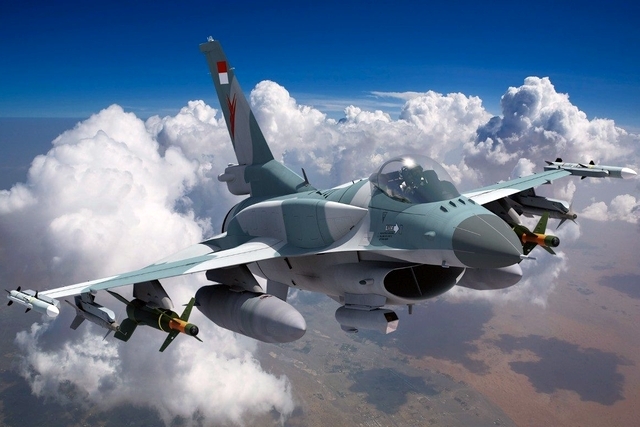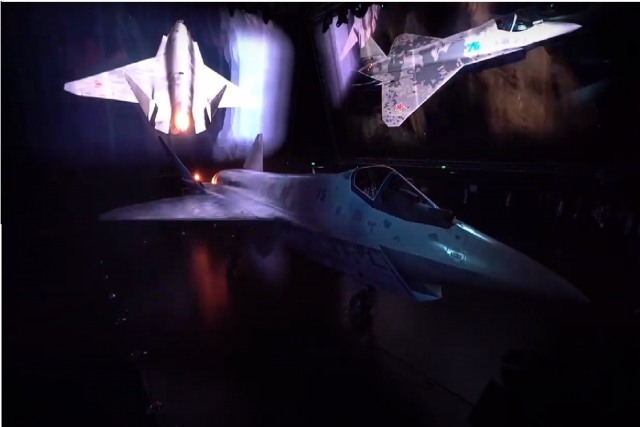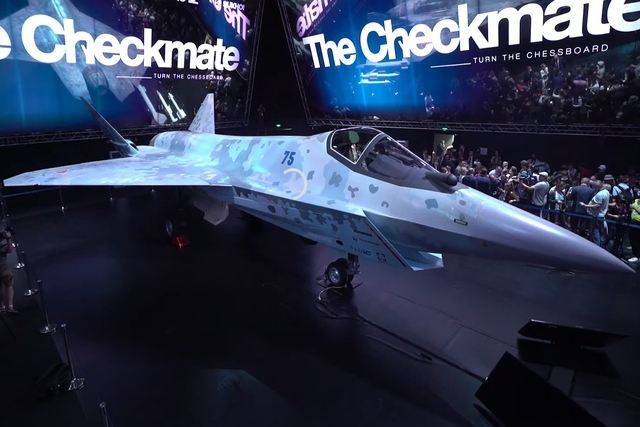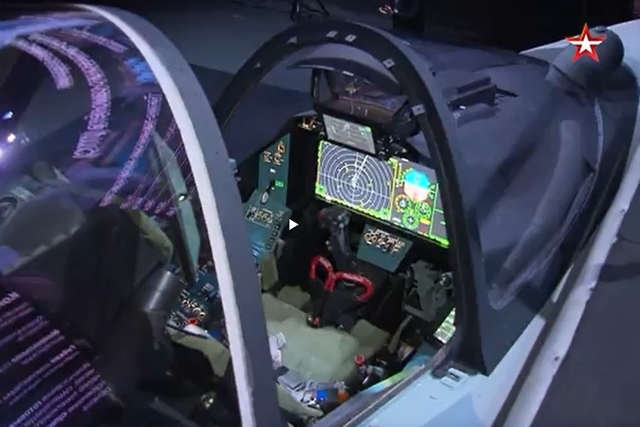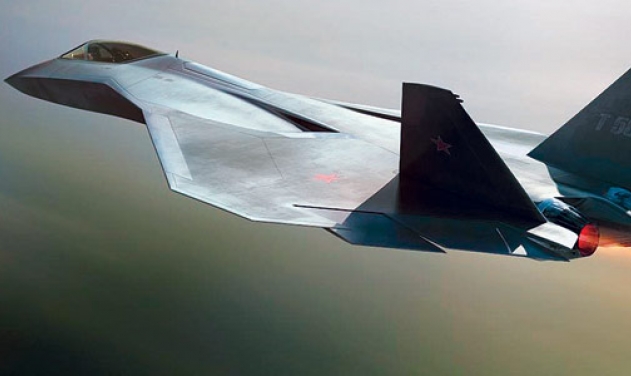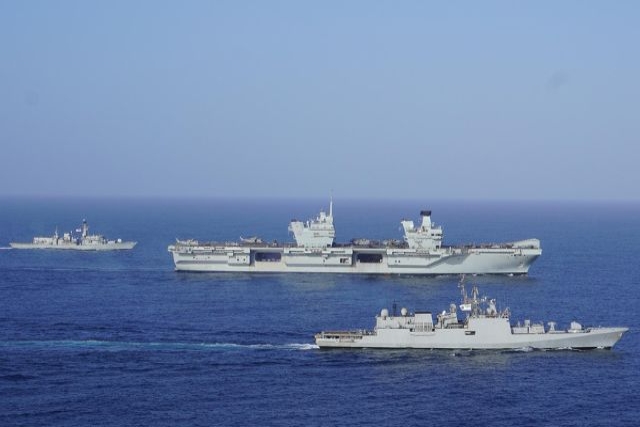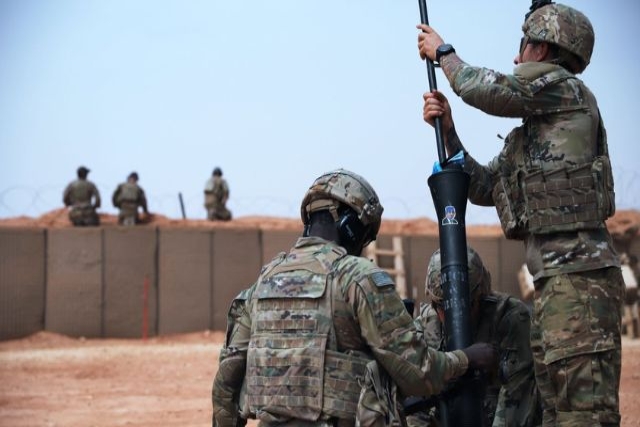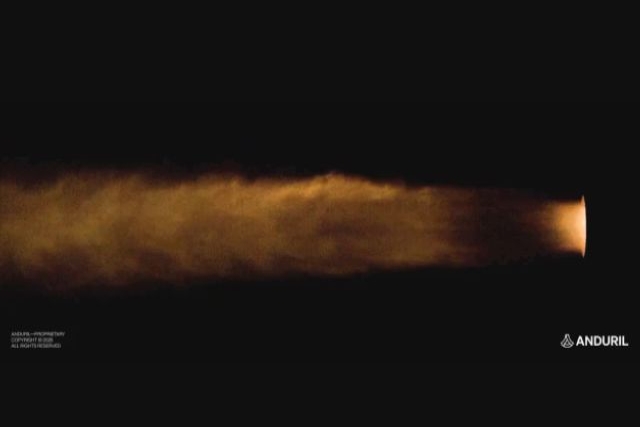New Sukhoi ‘Checkmate’ Jet May not get Su-75 designation
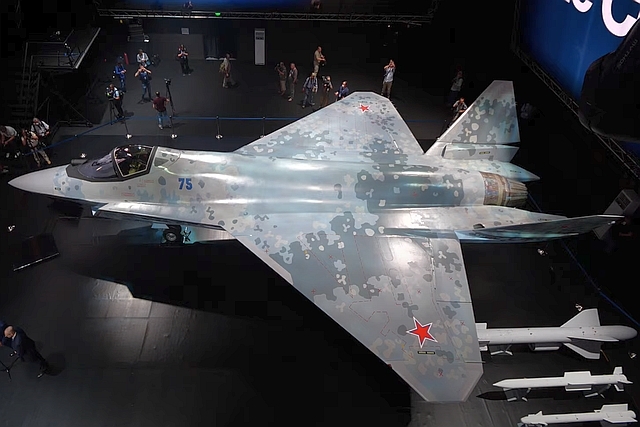
The New Russian Light Strike Fighter (LTS- Russian acronym) ‘Checkmate’ that broke cover at MAKS 2021 many not get the Su-75 designation going by the ‘75’ number displayed on the model or prototype displayed at the unveiling.
Speculation is rife in the Western media that the unconventionally named ‘Checkmate’ is actually the Su-75. However, informed sources told defenseworld.net that the ‘75’ seen on the fuselage is the aircraft-in-development designation for prototypes as seen before in Russian aircraft.
“If the ‘75’ painted on the side of the new jet is its actual designation, then United Aircraft Corporation (UAC) would have called it by its real name, that is ‘Su-75.’ The ‘75’ number could be indicative that this is a prototype and not a model or mock-up said the source.
For example, when the first Stealth fighter jet broke cover in Russia at MAKS 2011, it had the ‘52’ number painted on its front fuselage and ‘075’ on its tail. The aircraft was then called the PAK-FA (Perspective Fighter Aircraft of Frontline Aviation) which later became the T-50.
Subsequent prototypes of the T-50 displayed numbers such as 53, 54 and 55 indicating prototypes in numerical order It was designated as Su-57 much later, in 2017.
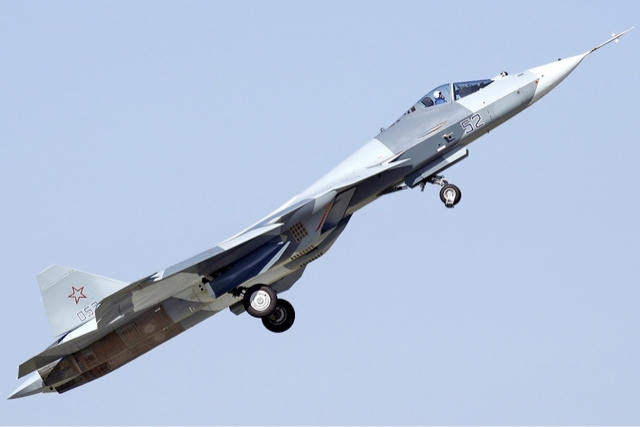
Just like the PAK-FA, the Light Strike Fighter (LTS) ‘Checkmate’ could be the name given during the development phase. It may well settle for the established Sukhoi naming system of Su-XX. Interestingly, the Su-57 designated was derived from the adding up of 35 and 22 (US F-35 and F-22), according to UAC officials who said the designation indicated an aircraft that had the combined qualities of the two leading US jets.
As UAC had made it clear that the LTS ‘Checkmate’ is going for the F-35’s market by offering a single engine stealth fighter at a third of the American Jet’s price, its model naming could be closer to the F-35 than the Su-57. As it is a smaller and lighter aircraft compared to Su-57 the ‘Checkmate’ could get a number lower than ‘57,’ the sources said.
The U.S. has been offering the upgraded F-16 V, with an airframe developed in the 1960s, to countries in Asia and the Middle East as a means to graduate to the F-35. An example is Indonesia which sought to buy the F-35 but was told to purchase the F-16 first if it wants its F-35 request to be considered later.
Russia wants to go after this kind of market; which has the need and means to buy the F-35 but to which Washington is unwilling to sell for various reasons.
